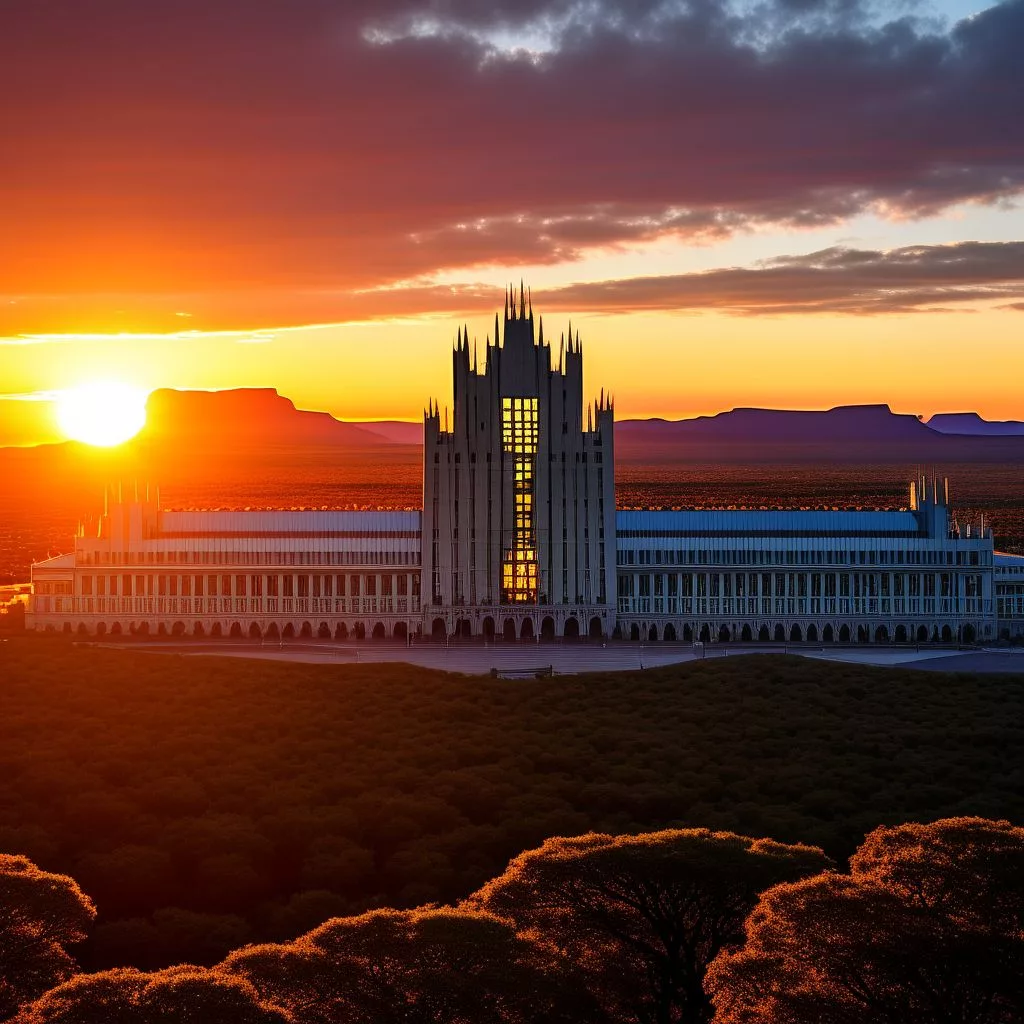Sam Nujoma was a brave leader who fought for Namibia’s freedom from South African rule, becoming the first elected President when the country gained independence in 1990. Born in a small village, he saw the unfairness around him and dedicated his life to changing it. Nujoma inspired many with his strong beliefs in unity and human rights, not just for Namibia, but for all of Africa. He worked hard to heal his country after years of conflict and dreamed of a brighter future for everyone. His legacy lives on, reminding us that courage and hope can create a better world.
Who is Sam Nujoma and why is he significant in African history?
Sam Nujoma was a key figure in Namibia’s liberation from South African colonial rule, becoming the first democratically elected President in 1990. His steadfast leadership, advocacy for African unity, and commitment to human rights and socio-economic development have solidified his legacy as a champion of justice in African history.
Early Life and Seeds of Activism
Sam Nujoma’s journey began in a modest village in northern Namibia’s Ongandjera region. Born on May 12, 1929, he grew up under the oppressive grip of South African colonial rule, which profoundly shaped his worldview. This environment of subjugation fueled Nujoma’s early awareness of systemic injustices, igniting a lifelong commitment to resistance and change.
In his youth, Nujoma quickly recognized the inequality that plagued his homeland. This awareness drove him to become actively involved in the political scene. He emerged as a key figure in the South West Africa People’s Organization (SWAPO). His leadership in SWAPO was pivotal, as the organization sought to dismantle the South African occupation and restore autonomy to Namibia.
The mid-20th century was a period of intense liberation efforts across Africa. Nujoma stood alongside iconic leaders like Nelson Mandela and Kenneth Kaunda, united by a shared vision of an Africa free from colonial rule. His contribution to Namibia’s liberation was significant, and his efforts inspired similar movements across the continent.
Steadfast Leadership in Turbulent Times
Nujoma’s journey was fraught with challenges, yet his resolve never wavered. The Cold War era added complexity to the liberation efforts, as global superpowers viewed African movements through a lens of ideological rivalry. Despite these geopolitical challenges, Nujoma maintained a strategic focus on achieving Namibia’s independence and self-governance.
March 21, 1990, marked a turning point in Namibia’s history when the country finally gained independence. Nujoma became the first democratically elected President, signifying a monumental victory for Namibians after years of struggle. His leadership during this transition was crucial, as it symbolized the triumph of resilience over oppression.
Nujoma’s presidency was dedicated to nation-building and reconciliation. He recognized the deep societal fractures caused by prolonged conflict and sought to mend these divisions. His administration prioritized socio-economic development, focusing on education, healthcare, and infrastructure to elevate the nation’s standard of living.
A Champion for African Unity and Human Rights
Beyond Namibia, Nujoma was a staunch advocate for African unity. He believed that Namibia’s independence was incomplete if neighboring countries remained under oppressive regimes. This belief fueled his support for liberation movements across Africa, earning him respect and admiration from his peers. His advocacy strengthened Namibia’s role in the African Union and regional organizations, promoting a vision of a united and progressive Africa.
Nujoma’s legacy also encompasses human rights and social justice. He envisioned a world where all nations could prosper in dignity and equality. His policies and international engagements were guided by these principles, as he vocally opposed inequality and the remnants of colonialism. His leadership helped shape a new narrative for Africa, emphasizing potential and cooperation.
The global mourning following Nujoma’s passing at age 95 highlighted the profound impact he had on the world stage. Tributes from international leaders underscored his transformative influence in modern history. Nujoma’s life remains a testament to the power of perseverance and visionary leadership in overcoming formidable challenges.
Inspiration for Future Generations
In the broader context of African liberation, Nujoma’s story stands as a beacon of hope and determination. He belongs to a lineage of leaders like Nelson Mandela and Kwame Nkrumah, whose lives were dedicated to the quest for freedom and justice. The liberation movement transcended political struggle, reshaping identities and futures for millions across the continent.
The enduring legacy of leaders like Nujoma offers valuable lessons for current and future generations. Their stories of courage and vision continue to inspire, emphasizing the possibilities that arise from unwavering commitment to justice. As Namibia and Africa reflect on Nujoma’s contributions, they celebrate his life’s work, a guiding light towards a brighter and more equitable future for all.
“`markdown
FAQ: Remembering Sam Nujoma
Who is Sam Nujoma and why is he significant in African history?
Sam Nujoma was a pivotal leader in Namibia’s struggle for independence from South African colonial rule, becoming the first democratically elected President in 1990. His unwavering commitment to human rights, African unity, and socio-economic development has established him as a champion of justice in African history.
What role did Sam Nujoma play in Namibia’s liberation movement?
Nujoma was a key figure in the South West Africa People’s Organization (SWAPO), which fought against South African occupation. His leadership was crucial in mobilizing efforts for Namibia’s independence, and he stood alongside other prominent African leaders advocating for liberation across the continent.
How did Nujoma’s early life influence his activism?
Born in a small village in northern Namibia in 1929, Nujoma grew up under South African colonial oppression. This environment instilled in him a deep awareness of systemic injustices and sparked his lifelong commitment to resist and change the status quo, eventually leading him to active political engagement.
What were some of the key achievements during Nujoma’s presidency?
As Namibia’s first President, Nujoma focused on nation-building and reconciliation after years of conflict. His administration prioritized education, healthcare, and infrastructure development to improve the quality of life for Namibians, symbolizing the transition from oppression to empowerment.
How did Sam Nujoma contribute to the cause of African unity?
Nujoma was a strong advocate for African unity, believing that Namibia’s independence was linked to the liberation of neighboring countries. He supported various liberation movements across Africa and played a significant role in regional organizations, promoting a vision of a united, progressive Africa.
What is Sam Nujoma’s legacy for future generations?
Nujoma’s story is an inspiration for current and future generations, emphasizing the potential for positive change through courage and commitment to justice. His life’s work serves as a guiding light in the ongoing quest for freedom, equality, and social justice in Namibia and across Africa.
“`












